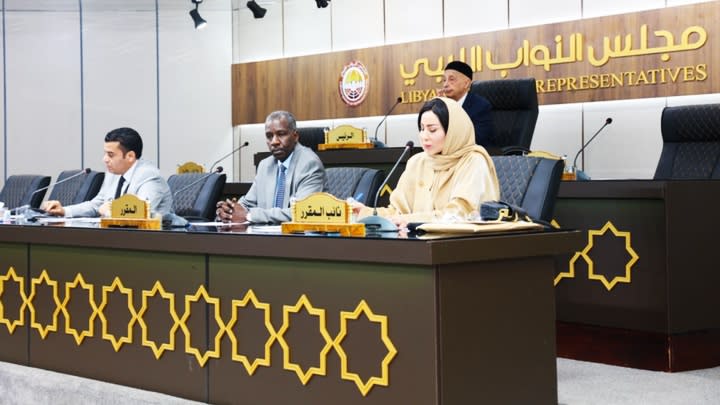Libya's parliament continues today, Tuesday, to hold a hearing session for the programs of the candidates for the new government's presidency, seeking to form an alternative to the Government of National Unity in Tripoli, which faces increasing popular demands for its departure.
So far, 13 candidates have applied for the position of government presidency, including the Ministers of Health and Interior in the parliament-appointed government of Aqila Saleh, Osman Abdul Jalil and Major General Essam Abu Zeribeh.
Abdul Hakim Bayou, one of the candidates, stated that today's session will include presenting the candidates' files, listening to their programs and work plans, in preparation for taking the necessary steps to clarify the vision of the individual who will lead the new government.
The parliament's move to form this government comes amidst a widening circle of popular anger against the Government of National Unity, with calls for its departure and the resignation of several of its ministers, especially after the clashes witnessed in the capital, Tripoli.
However, this move was met with rejection within the parliament, as 26 deputies issued a statement declaring their refusal to form a new government without comprehensive political consensus, considering that forming a unilateral government without agreement would reproduce a previous failed experience and increase political divisions in the country.
At the same time, there has been no comment yet from the head of the Government of National Unity, Abdul Hamid Dbeibah, on the popular protests demanding his departure, nor has the United Nations mission or the international community announced any position supporting or opposing the parliament's plan to form a new government.
The Libyan political scene remains complex, amidst increasing demands for comprehensive consensus among political forces to ensure the country's stability and overcome successive crises.

